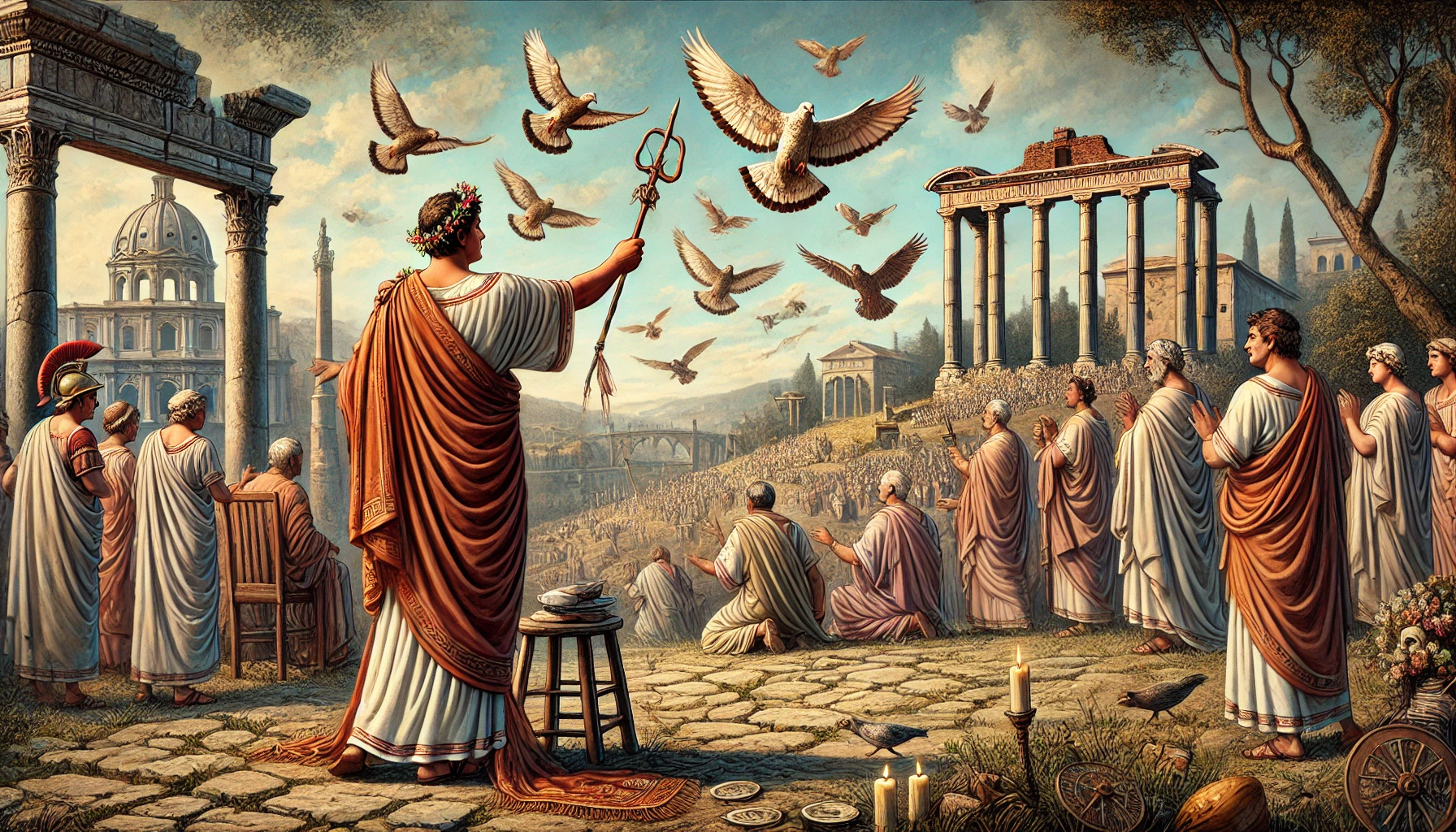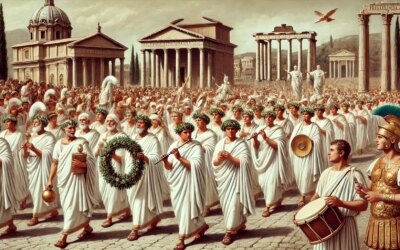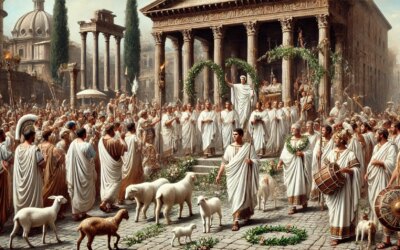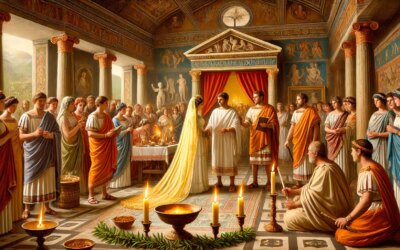When the Birds Spoke for the Gods
In ancient Rome, no decision of consequence—whether founding a colony, electing a magistrate, or marching to war—was made without first consulting the heavens. At the center of this divine dialogue stood the augur, a priest of the Roman state whose sacred task was to interpret the will of the gods through natural signs, most famously the flight of birds. In a culture where religion permeated law, politics, and military command, augury was far more than superstition—it was a central mechanism of power and legitimacy in the Roman Republic and beyond.
The Role of the Augur
Augurs were members of an exclusive college of priests, the Collegium Augurum, which originally numbered only three but expanded over time. They were responsible for conducting auspices (auspicia)—formal observations of signs believed to reflect divine favor or displeasure. These signs could include thunder, lightning, the behavior of animals, or most traditionally, the movements of birds.
To perform their duties, augurs used a lituus—a ritual staff curved at the end—while standing within a designated templum, a sacred space marked out by orientation to the cardinal points. Within this symbolic framework, the sky was divided into quadrants, and the behavior of birds within each quadrant conveyed different meanings. For example, the appearance of certain birds from the left was considered favorable (auspicia ex avibus), while others were ominous.
Augury in Public Life
Augury was required before a wide range of public actions:
- Senate Meetings: No session of the Senate could proceed without a favorable auspice.
- Elections: Roman magistrates sought divine approval before assemblies; a negative sign could suspend voting.
- Military Campaigns: Generals relied on auspices to determine the timing of departures and engagements.
- Founding Cities and Colonies: Rituals ensured divine blessing for urban foundations.
In some cases, augurs could annul decisions retroactively by declaring that improper or unfavorable auspices had been ignored—providing a powerful political tool. Roman politicians often manipulated augury for strategic ends, though they were careful never to publicly deny its sacred authority.
Augury vs. Haruspicy
While augury involved observing birds and atmospheric signs, it was distinct from haruspicy, the Etruscan-derived practice of reading omens from the entrails of sacrificed animals. Haruspices were often foreigners or specialized priests consulted by the Senate during crises. Augurs, in contrast, were native Roman priests embedded within the state apparatus, with formal authority over civic rituals.
Famous Augurs in Roman History
Several prominent Romans held the office of augur alongside their political careers:
- Marcus Tullius Cicero: The great orator proudly served as an augur and wrote a now-lost treatise on divination.
- Julius Caesar: As pontifex maximus, Caesar presided over religious affairs and often invoked augury to justify political moves—though he was famously skeptical in private.
- Scipio Nasica: Declared unfavorable auspices during times of civil discord, influencing major senatorial decisions.
These men understood that religion in Rome was both deeply sacred and immensely strategic. Control of augury meant influence over the direction of the Republic itself.
Criticism and Satire
Despite its formal importance, augury was often met with skepticism, especially in later periods. The philosopher Cicero, though an augur himself, openly questioned the logic of divine birds in his dialogues. Satirists like Lucian and Juvenal mocked the idea that bird calls could dictate affairs of state. Yet public reverence remained. Romans might doubt in private, but in public, the rituals had to be performed—“just in case.”
Decline and Transformation
With the rise of the Empire, the College of Augurs continued, but the function of augury shifted. Emperors like Augustus incorporated augural rites into the imperial cult, transforming religious authority into a tool of centralized power. By the 4th century CE, as Christianity became dominant, traditional augury faded—dismissed by Church fathers as pagan superstition.
Yet elements survived. The use of omens, divination, and sacred signs persisted in Christian practice, often cloaked in new theological language. And the symbolic weight of augury—seeking divine approval before action—remains embedded in political and military traditions even today.
Legacy in Sky and Scripture
Though no modern state consults augurs before convening its legislature or declaring war, the Roman belief in reading the signs lives on in language and culture. We speak of “auspicious” occasions, watch for “bad omens,” and look to the skies in moments of uncertainty. The ancient augurs, with their staffs and stares, taught a civilization to listen—not just to birds, but to the world itself.






